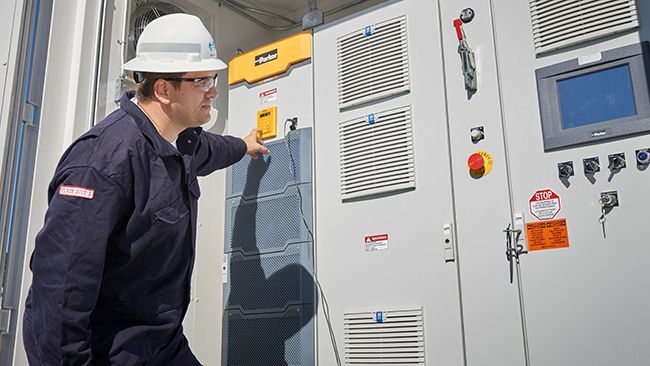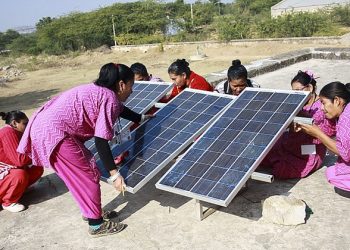Duke Energy Florida (DEF) announced three battery storage projects, totaling 22 megawatts, that will improve overall reliability and support critical services during power outages, according to the company.
As the grid manager and operator, DEF can maximize the versatility of battery technology to include multiple customer and electric system benefits such as balancing energy demand, managing intermittent resources, increasing energy security and deferring traditional power grid upgrades.
- The 11-megawatt (MW) Trenton lithium-based battery facility will be located 30 miles west of Gainesville in Gilchrist County. The energy storage project will continue to improve power reliability using newer technologies.
- The 5.5-MW Cape San Blas lithium-based battery facility will be located approximately 40 miles southeast of Panama City in Gulf County. The project will provide additional power capacity to meet our customers’ increasing demand for energy. This project is an economical alternative to replacing distribution equipment necessary to accommodate local load growth.
- The 5.5-MW Jennings lithium-based battery facility will be located 1.5 miles south of the Florida-Georgia border in Hamilton County. The project will continue to improve power reliability through energy storage as an alternative solution to installing new and more costly distribution equipment.
A spokesperson for Duke said that it is too early to give the MWh rating for each project. The company has design ranges in mind, she said, but plans to competitively bid the engineering, procurement and construction for each project. Major equipment items include battery, transformer, and inverter.
“While Duke Energy does not have a specific cost for each individual project yet, the settlement agreement allows for $2,300 per kW for the 50 MW program,” she added. Currently the company plans to complete all three projects by the end of 2020.
“These battery projects provide electric system benefits that will help improve local reliability for our customers and provide significant energy services to the power grid,” said Catherine Stempien, Duke Energy Florida state president.
“Duke Energy Florida will continue to identify opportunities in battery storage technology which will deliver efficiency improvements to our customers.”
Solar + Storage and Microgrids
As part of DEF’s commitment to renewables, the company is investing an estimated $1 billion to construct or acquire a total of 700 MW of solar power capacity and 50 MW of battery storage through 2022.
Duke Energy is leading the industry deployment of battery technology. Last fall, the company and University of South Florida St. Petersburg unveiled a Tesla battery storage system that is connected to a 100-kilowatt (kW) solar array – the first of its kind in Florida.
This solar-battery microgrid system manages the energy captured by the solar array, situated on top of the university’s parking garage. The solar array was constructed three years ago through a $1 million grant from Duke Energy. The microgrid provides a backup power source during a power outage for the parking garage elevator, lights and electric vehicle charging stations
In addition to expanding its battery storage technology and solar investments, DEF is investing in transportation electrification to support the growing U.S. adoption of electric vehicles (EV), 530 EV charging stations and a modernized power grid to deliver the diverse and reliable energy solutions customers want and need.





